Nature is beautiful and amazing. Nature creates
wonders, sometime it’s really hard to believe that they are actually exist. In
our daily life, we experience some crazy stuff that makes us to think about it.
Like these amazing things in nature, it’s hard to believe in, but all these
things are real and true.
Our world is so full of wonders that new and amazing
places are discovered every day, be that by professional photographers or
amateurs. Different geographical locations, climatic conditions and even seasons
offer the widest variety of natural wonders: pink lakes, stunning lavender or
tulip fields, breath-taking canyons and mountains, and other places you can
hardly believe actually exist!
Some of the pictures in this collection will be of
all natural sights you can find while traveling around the world, while the
others have experienced human interference – but even in these cases, the result
of such collaboration is spectacular. The Japanese learned how to tame thousands
of orchids and form a romantic tunnel out of them; another one was formed all
the way in Ukraine by a passing train; and what eventually ends up as hot tea in
our mugs, first grows in stunning tree fields in Asia.
No wonder that traveling in one of the best forms of
recreation – even looking at these pictures takes your mind to far away places…
And yes, all those of those places are real!
Feel free to add more places in the comments under
the article.
Tunnel of Love, Ukraine
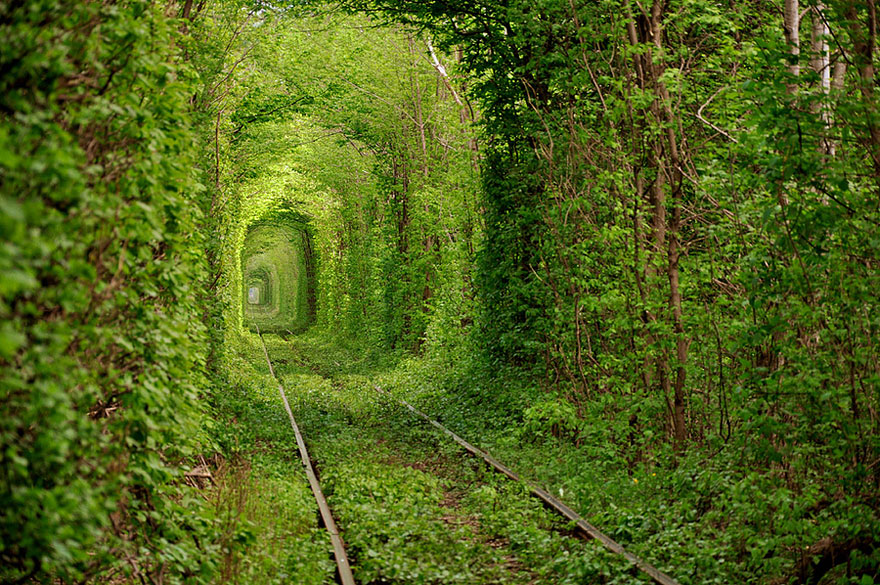
Tulip Fields in Netherlands
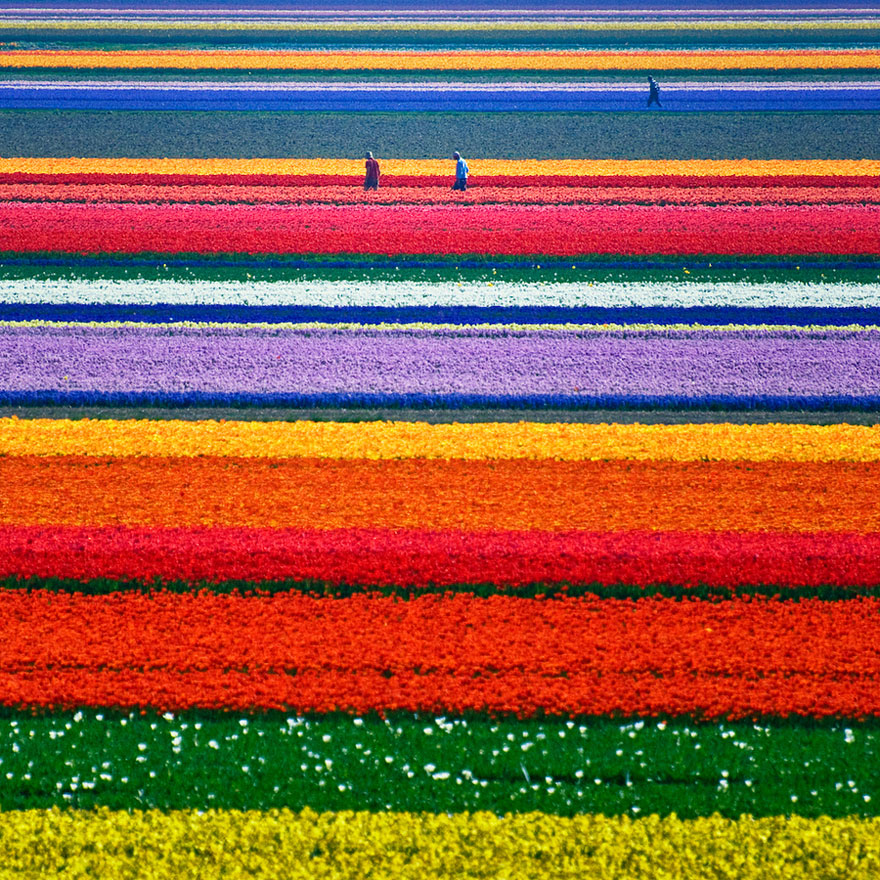
Salar de Uyuni: One of the World’s Largest Mirrors, Bolivia
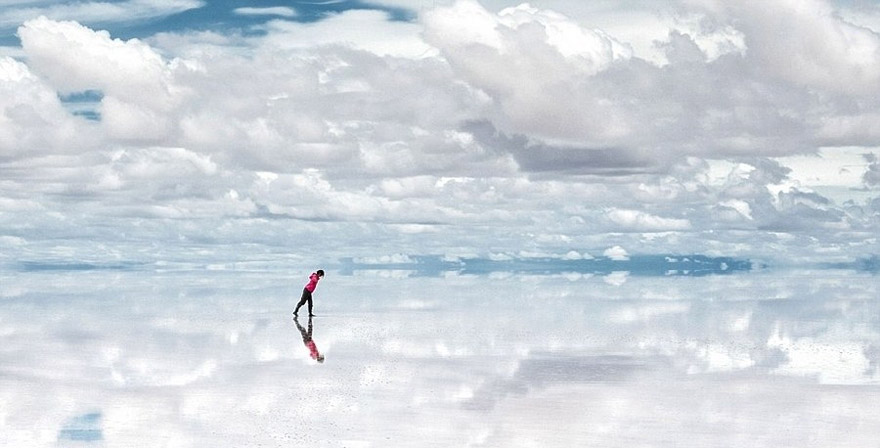
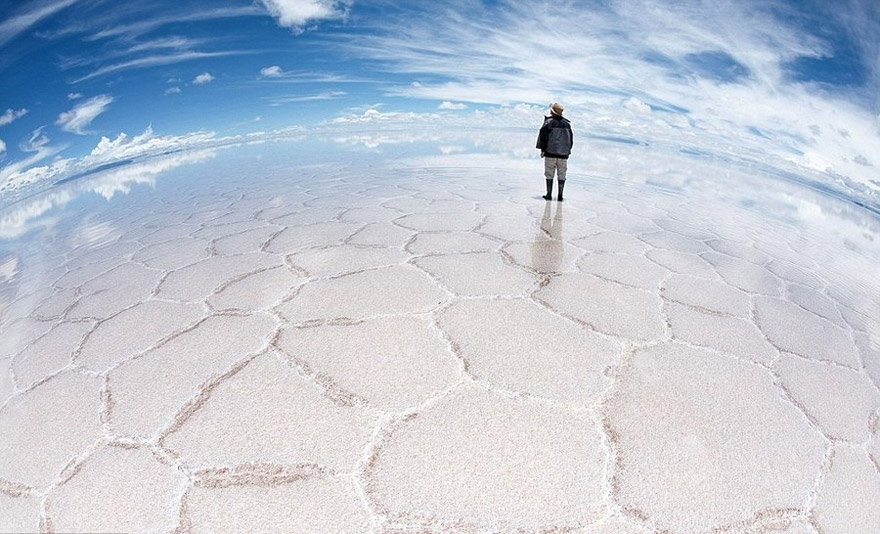
Hitachi Seaside Park, Japan

Mendenhall Ice Caves, Juneau, Alaska
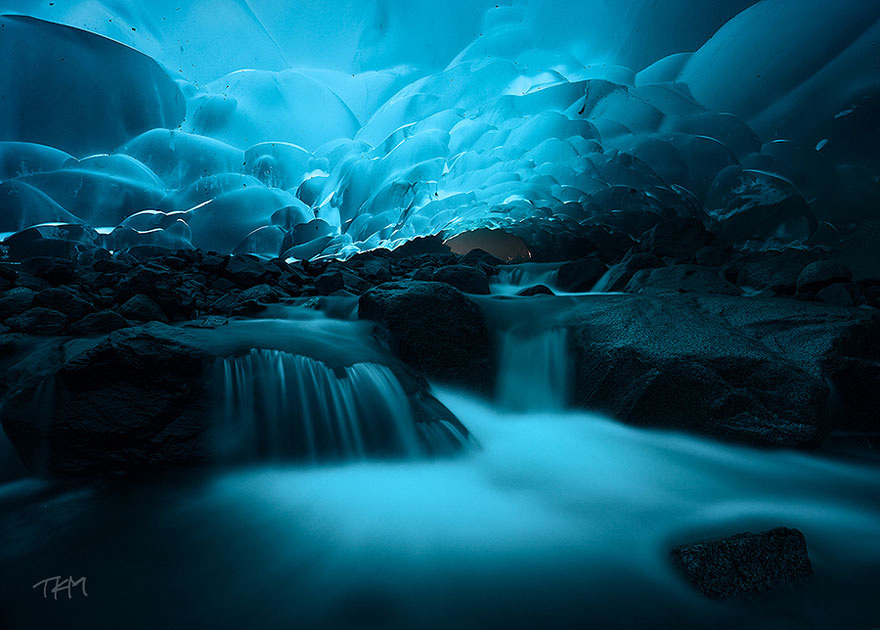
Red Beach, Panjin, China
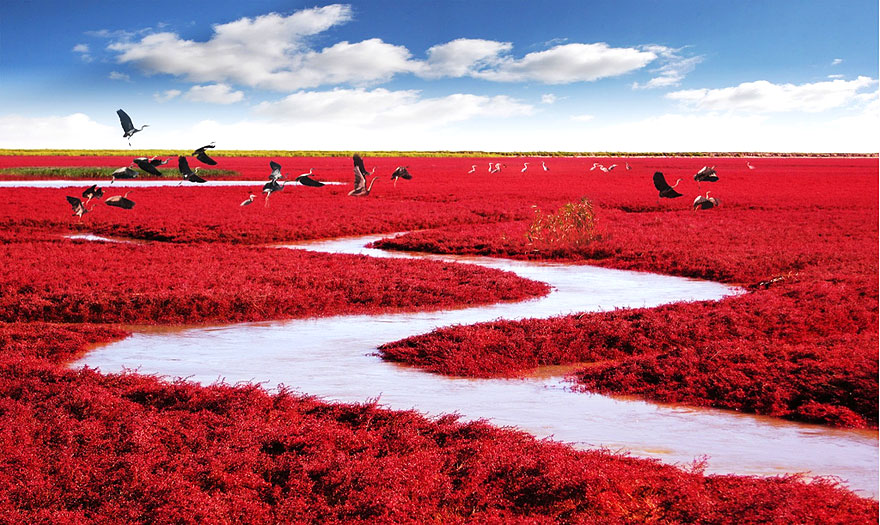
Bamboo Forest, Japan

Street in Bonn, Germany

Naica Mine, Mexico
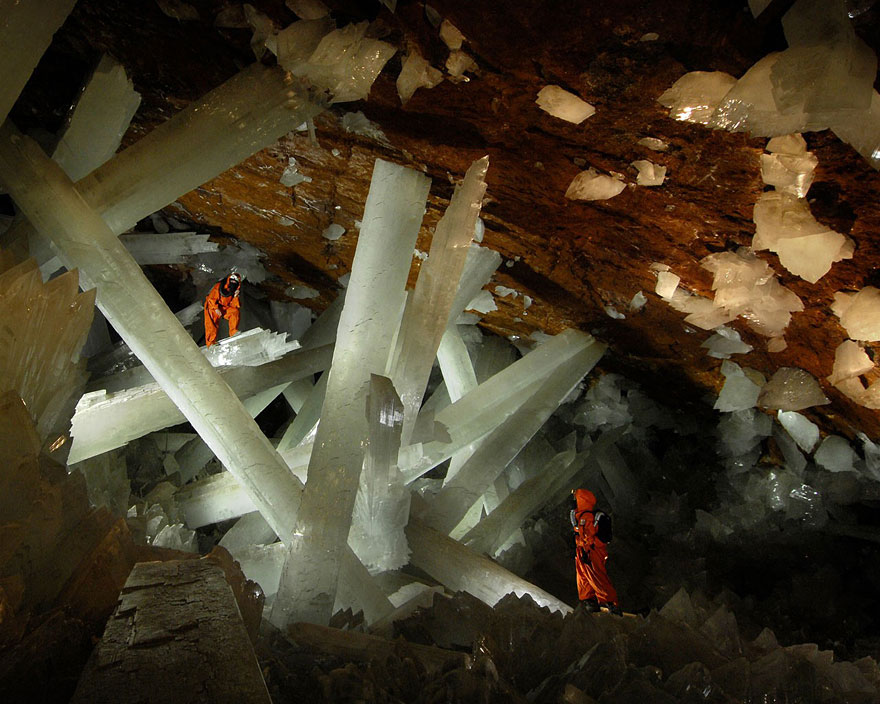

Wisteria Flower Tunnel in Japan
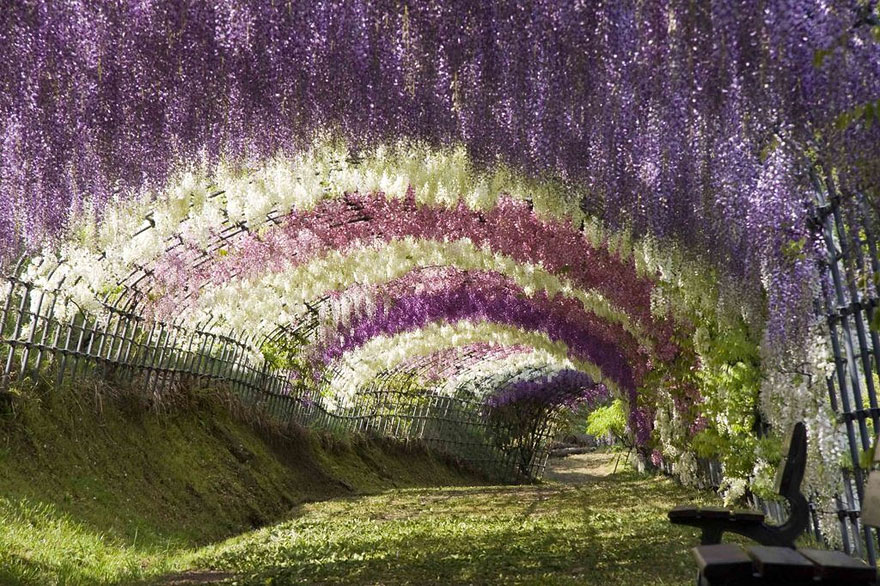

Black Forest, Germany

Image credits: andy linden
Fields of Tea, China
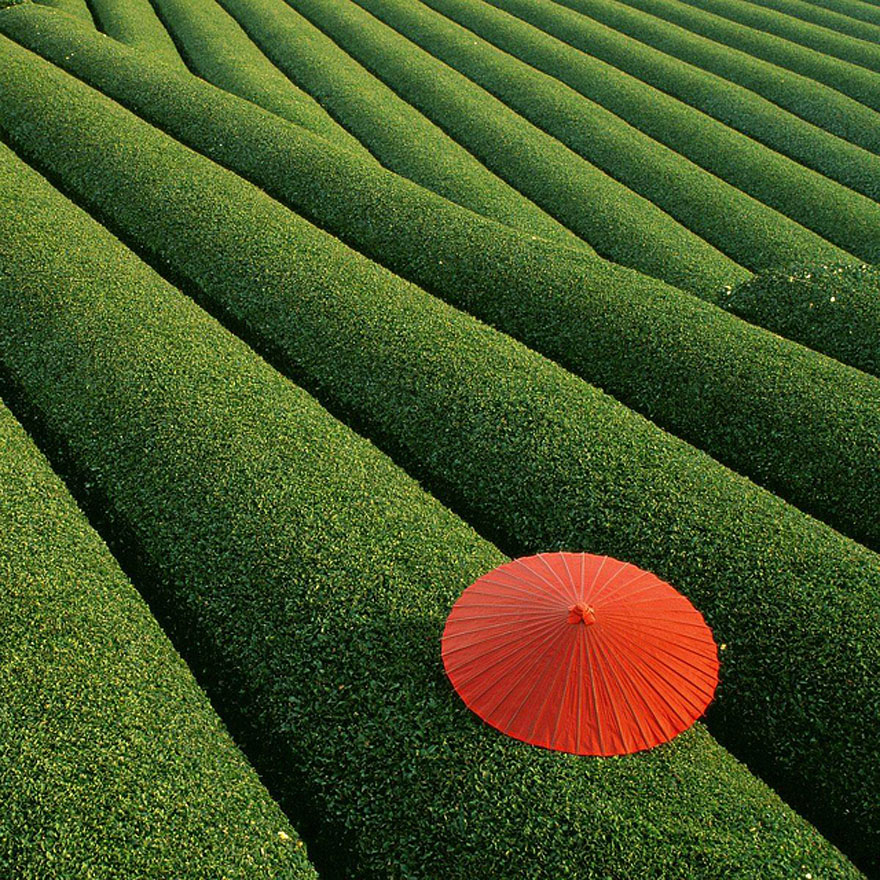
Tianzi Mountains, China
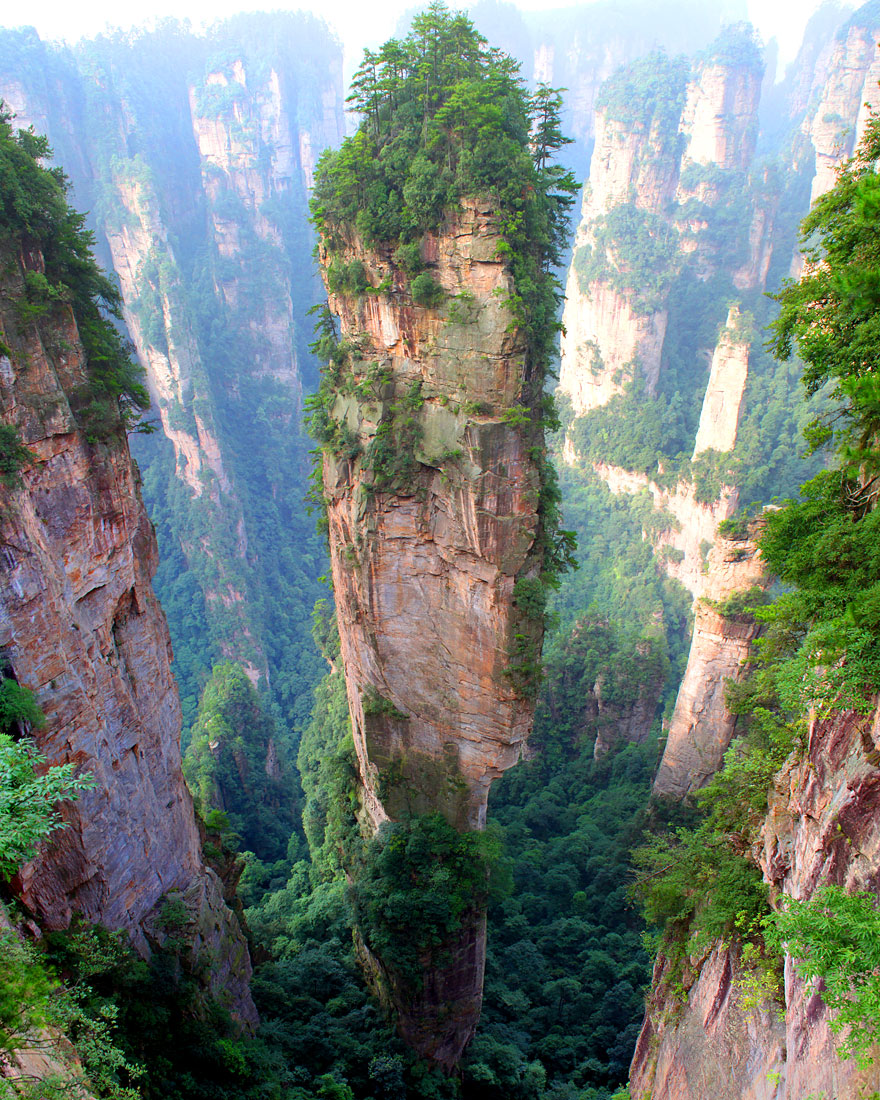
Hang Son Doong, Vietnam
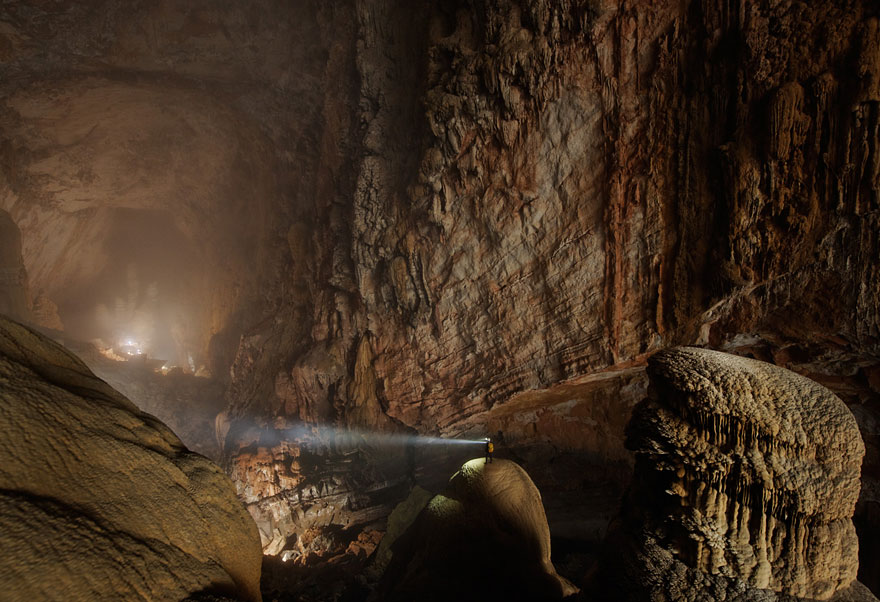
Shibazakura Flowers, Takinoue Park, Japan
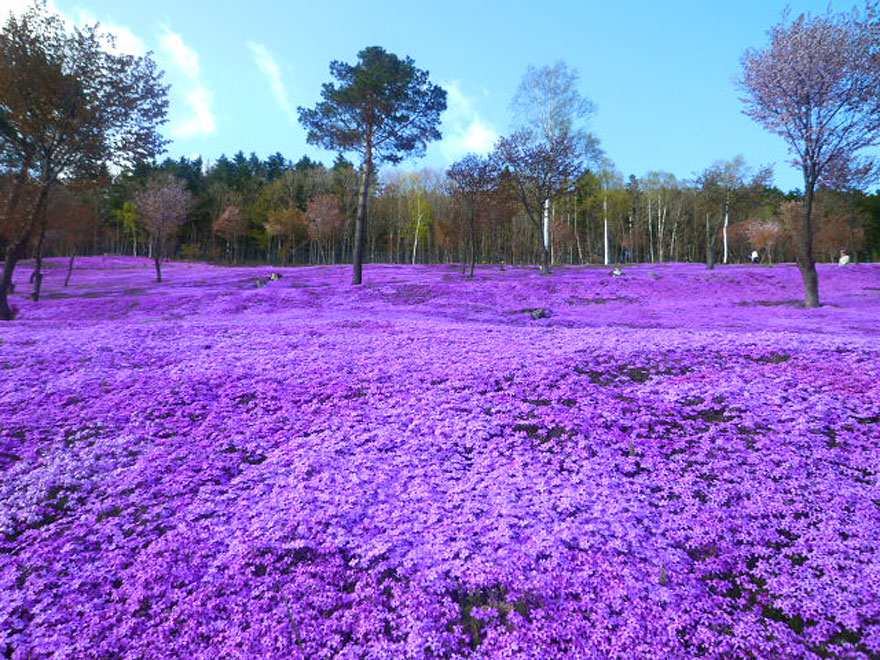
Antelope Canyon, USA

Lake Hillier, Australia

Lake Retba, Senegal
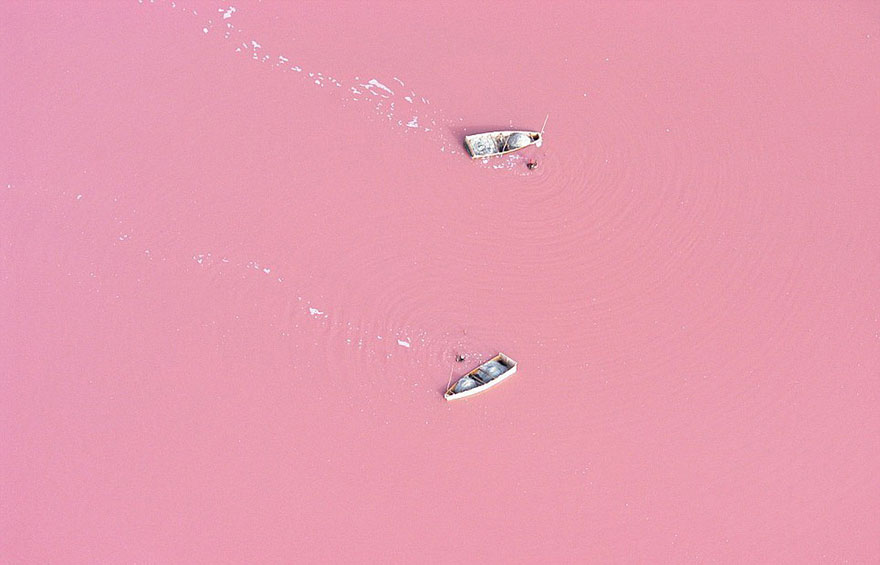
Lavender Fields, UK and France
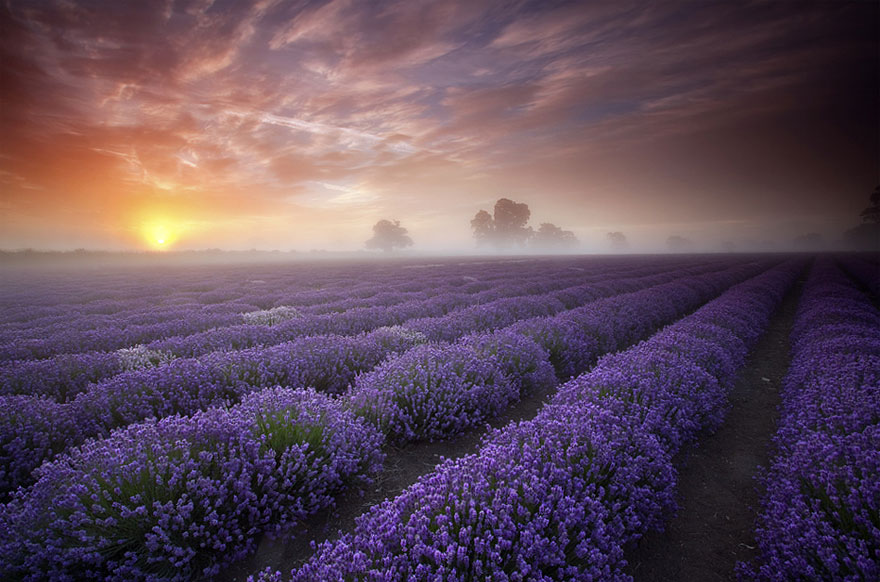
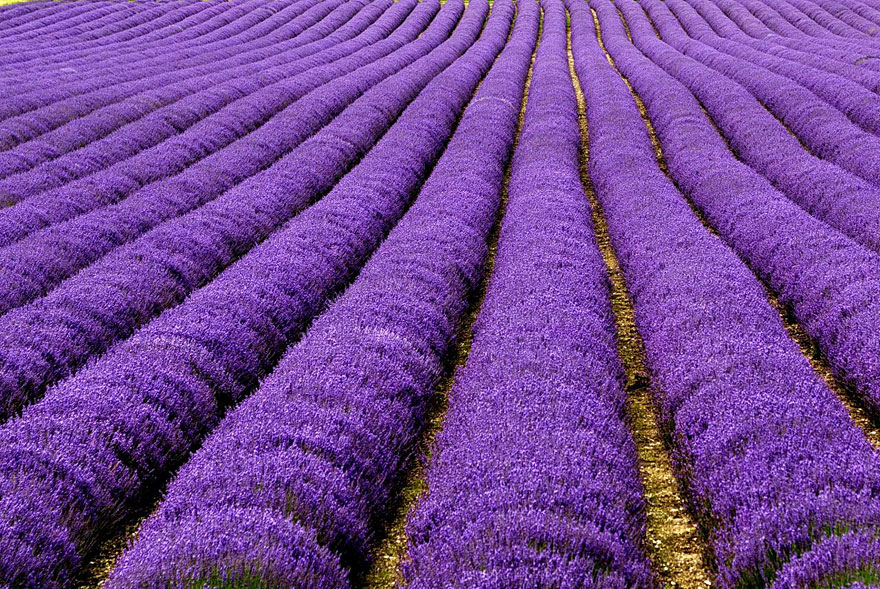
Canola Flower Fields, China


Mount Roraima, Venezuela/Brazil/Guyana

Zhangye Danxia Landform, China

Did we miss anything? Add it in the comments under
the article.
To truly comprehend these magnificent sights, you
must witness them for yourself. so here are Amazing things you won’t believe
actually exist in nature :
Reflective Salt Flats in Bolivia
Salar de Uyuni is the world’s largest salt flat
coming in at 10,582 square kilometers (4,086 sq mi).
Located in southwest Bolivia, These breathtaking salt
flats are definitely on the
list of things you need to see before you die. Resulting from the
transformation of several prehistoric lakes, which over eons have left a water
salted crust over this vast flat, Salar de Uyuni is a mesmerizing sight to
witness as you watch it reflect the sky ever so beautifully. Walking through
this mirrored wonderland, one might forget which way is up and which way is
down.
Giant Crystal Cave in Naica, Mexico
Photo by: National Geographic
Mexico’s Cueva de los Cristales (Cave of Crystals) is
home to the largest natural crystal formations found anywhere in the world.
Thriving under unbelievably rare conditions, this cave in mexico provided the
perfect environment for these crystals to grow to incredible sizes.
Geologist Juan Manuel Garcia-Ruiz explains in an
issue of Geology, that for millennia these crystals grew in a consistent 136 degrees Fahrenheit (58 degrees Celsius), filled with mineral-rich
water that hyper boosted the growth of these amazing beauties. Garica-Ruiz upon
thinking about these amazing wonders said “There
is no other place on the planet where the mineral world reveals itself in such
beauty.”
Pink Lake Hillier in Australia
When you think of what color a lake might be; blue,
brown, maybe even green may come to mind. But I doubt you would ever associate
the color pink with of body of water. Well for anyone traveling over the western
islands of Australia this unbelievable phenomenon can be witnessed with their
own eyes.
The captivating pink lake is not a trick of the
light, and it retains it’s hue when removed, but the origin of it’s bubble gum
aesthetics remains a mystery the science community is still trying to solve.
best guess right now is that it has to do with the high salt levels in the
water. Being that Lake Hillier is 10 times saltier than the ocean, it is the
perfect breeding ground for the salt loving micro-algae Dunaliella Salina.
These tiny little guys produce pigment compounds that absorb light like
Beta Carotene which is the same kind of stuff that makes carrots orange and some
cabbages purple.
Pokemon Go augmented reality craze sweeps globe. Fad
or gaming revolution?
Latest fad
Not sure
Game revolution
Volcanic Lightning in Iceland
Photo by: Sigurdur Hrafn Stefnisso
This
epic display of lightning in Iceland is what scientist call a “dirty
thunderstorm.”
The electrifying phenomena happens when rock
fragments, such as ash collide with ice particles in a volcanic cloud. as it is
carried up into higher than normal parts of the atmosphere, it starts creating
static with the surface of the planet thus providing the electrical charge
needed for lightning.
Frozen Air Bubbles in Abraham Lake
Photo by: Chip Phillips
Abraham Lake in Alberta Canada is home to a rare
phenomenon that needs to be seen to believe. Trapped under it’s frozen surface,
methane gas creeps its way up creating beautiful air bubbles as it freezes and
melts and freezes and melts as the flammable element searches for its way
out.
The methane is created when plants, and animals in
the lake sink to the bottom and react with the bacteria in the water. the
bacteria begins to break down the organic matter, decomposing them, slowly
releasing the gas. Usually the gas floats its way to the top of the lake where
it is released in the air, but when the lake freezes over, methane struggles a
little more to find it’s freedom. It’s hardship shapes moving images, leaving
admirers breathless.
Spiderweb Cocooned Trees in Pakistan
Flickr: dfid
This eerie vision of ghost trees is actually an act
of survival from millions of spiders in the village of Sindh,
Pakistan.
In 2010 massive flooding forced millions of spiders
to seek shelter in the higher grounds of the tree tops, and over time the have
created intricately beautiful webbed homes for themselves in the most peculiar
of places.
Shimmering Shores of Vaadhoo Maldives
Photo by: Doug Perrine
This midnight light show on the shores of Vaadhoo,
Maldives however unbelievable is not the result of an elaborate Photoshop. It is
however the result of tiny marine microbes called phytoplankton washing up on
the sand.
There are many types of phytoplankton that are known
to have an ability called bio-luminescence which allows them to glow as a
defensive mechanism to scare predators and lure bigger predators to eat the ones
looking to eat them (Oh, the circle of life). When these plankton are agitated
they let off their glow creating stars in the ocean as the waves ripple them to
shore.
The Blood Falls in Antartica.
Blood Falls is an outflow of an iron oxide-tainted plume of saltwater, flowing from the tongue of the Taylor Glacier onto the ice-covered surface of West Lake Bonney in the Taylor Valley of the McMurdo Dry Valleys in Victoria Land, East Antarctica.
Rainbow Eucalyptus Trees in Kailua, Hawaii.
Eucalyptus deglupta is a tall tree, commonly known as the rainbow eucalyptus. It is the only Eucalyptus species found naturally in New Britain, New Guinea, Ceram, Sulawesi and Mindanao. The unique multi-coloured bark is the most distinctive feature of the tree. Patches of outer bark are shed annually at different times, showing a bright green inner bark. This then darkens and matures to give blue, purple, orange and then maroon tones.
The Wave Arizona.
The Wave is a sandstone formation on the slopes of the Coyote Buttes in the Paria Canyon-Vermilion Cliffs Wilderness, located in northern portion of the U.S. state of Arizona. The Beautiful sandstone formation is famous among hikers and photographers for its colorful, undulating forms, and the rugged.
Light Pillars Over
Moscow.
It’s a visual phenomenon created by the reflection of light from ice crystals with near horizontal parallel planar surfaces. The light can come from the Sun, Moon or from terrestrial sources such as streetlights.
Reflective Salt Flats in Bolivia.
Amazing salt flats where the sky and ground merge into one to create dreamy landscapes. Salar de Uyuni is the world’s largest salt flat at 10,582 square km. This is not water, the ground is covered in a layer of salt crust so reflective, it perfectly mirrors the sky. The Salar was formed as a result of transformations between several prehistoric lakes. It is covered by a few meters of salt crust, which has an extraordinary flatness with the average altitude variations within one meter over the entire area of the Salar.
Cenote, Underground Natural Spring in Mexico.
Nature creates wonders, sometime its really hard to believe, this underground natural spring in Mexico is one of them. Known as Cenote, is a natural pit, or sinkhole resulting from the collapse of limestone bedrock that exposes groundwater underneath.
The Dirty Thunderstorm.
A dirty thunderstorm, also “Volcanic lightning” is a weather phenomenon that occurs when lightning is produced in a volcanic plume. A study indicated that electrical charges are generated when rock fragments, ash, and ice particles in a volcanic plume collide and produce static charges, just as ice particles collide in regular thunderstorms. Volcanic eruptions also release large amounts of water, which may help fuel these thunderstorms.
The Ghost Trees in Pakistan.
The eye-catching phenomenon is an unexpected side-effect of the flooding in parts of Pakistan. Millions of spiders climbed up into the trees to escape the rising flood waters, shrouding them with their silky webs. Because of the scale of the flooding and the fact that the water has taken so long to recede, many trees have become cocooned in ghostly spiders webs.
Underwater Forest in Kaindy Lake, Kazakhstan.
The sunken forest is part of a 400 meter long Lake Kaindy in Kazakhstan’s portion of the Tian Shan Mountains located 129 km from the city of Almaty. The lake was created as the result of an enormous limestone landslide, triggered by the 1911 Kebin earthquake.


0 comments: